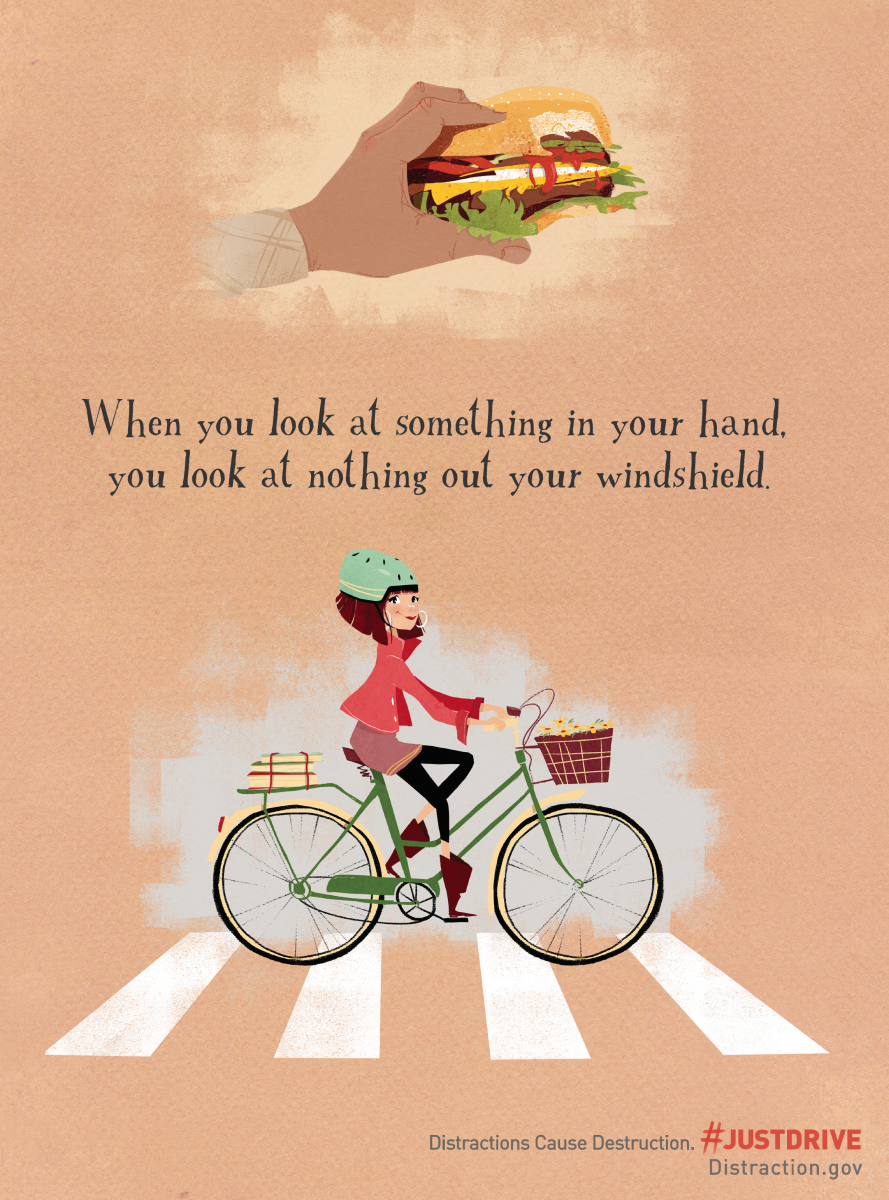DISCOVER YOUR LOCAL BICYCLING COMMUNITY
Find local advocacy groups, bike shops, instructors, clubs, classes and more!
Bike Law University: Distracted Driving
April is National Distracted Driving Awareness Month and there are numerous national, state, and local campaigns to educate the public about the dangers of not putting down your cell phone behind the wheel. While there is widespread understanding that distracted driving is bad (a recent AAA survey found that over 80% of people find texting or emailing while driving a serious threat to safety), many people still engage in those behaviors (the same survey found that over 40% of drivers had read an email or text within the last 30 days) and some states still lack laws that make it illegal to text while driving. Sharing the road is much harder when people are not looking at the road. Effective distracted driving laws and enforcement are key to discouraging this dangerous behavior.

What are they? Generally, distracted driving can be caused by any activity that can divert a person’s attention away from the primary task of driving. Although distracted driving can take many forms, distracted driving laws are primarily a response to the spread of mobile communications devices into our vehicles. The most common distracted driving laws include bans on text messaging, bans on cell-phone use, and the required use of a hands-free device while operating a mobile communications device in a vehicle. These laws can either be primary enforcement laws, which means a driver can be pulled over solely for violating the distracted driving law, or secondary enforcement laws, which means that the distracted driving law can only be enforced if another traffic offense also takes place.
Why should you care? In 2010, 18 percent of injury crashes were reported as distraction-affected crashes. The prevalence and use of mobile communications devices has increased dramatically in the last decade and is likely to continue to increase. Safe bicycling and safe driving requires an awareness of your surroundings that is made more difficult by the use of mobile communications devices in vehicles. Distracted driving laws are important because they encourage people to stay focused on the task of driving and can be used in legal actions resulting from collisions or other incidents between road users. If you would like to know more about the dangers of distracted driving, particularly distracted driving caused by the use of mobile communications devices, the National Highway Traffic Safety Administration (NHTSA) and the US Department of Transportation (DOT) have a great site with links to research and reports on the issue.
Who has them? Thirty-nine states ban text messaging for all drivers, and 33 states ban all cell phone use by novice drivers. Ten states prohibit all drivers from using handheld cell phones while driving. To learn more about the various laws targeting distracted driving please see the excellent information put together by the Governors Highway Safety Association.
Spotlight State –New Jersey New Jersey has some of the strongest laws in the country to combat distracted driving. It is one of only two states — the other is Delaware — that has primary enforcement laws against all cell phone use by school bus and novice drivers, text messaging by all drivers, handheld use by all drivers, and includes a category for cell phone/electronic equipment distraction on police accident forms, according to the Governors Highway Safety Association. Every year since 2008 New Jersey drivers have been issued about 100,000 summons based upon illegal talking or texting while driving. Recent studies have shown that strong texting bans can reduce fatal single-occupancy, single-vehicle crashes but that vigilant enforcement is needed and concurrent handheld bans increase the effectiveness of texting bans.
Where did they come from? Distracted driving is a relatively new issue and has been addressed in a variety of ways by states. In 2000, only three states had laws related to cell phones in cars. Oregon was the first state to make distracted driving a priority by incorporating it into their Strategic Highway Safety Plan in 1999. Since 2000, every state has considered legislation related to cell phone use in cars or distracted driving, and almost 200 bills were considered in 2009 alone As of the last revision to the Uniform Vehicle Code (UVC) in 2000, there are no UVC sections relevant to distracted driving. You can learn more about distracted driving in this report: http://www.advocacyadvance.org/docs/distracted_driving_league_report.pdf